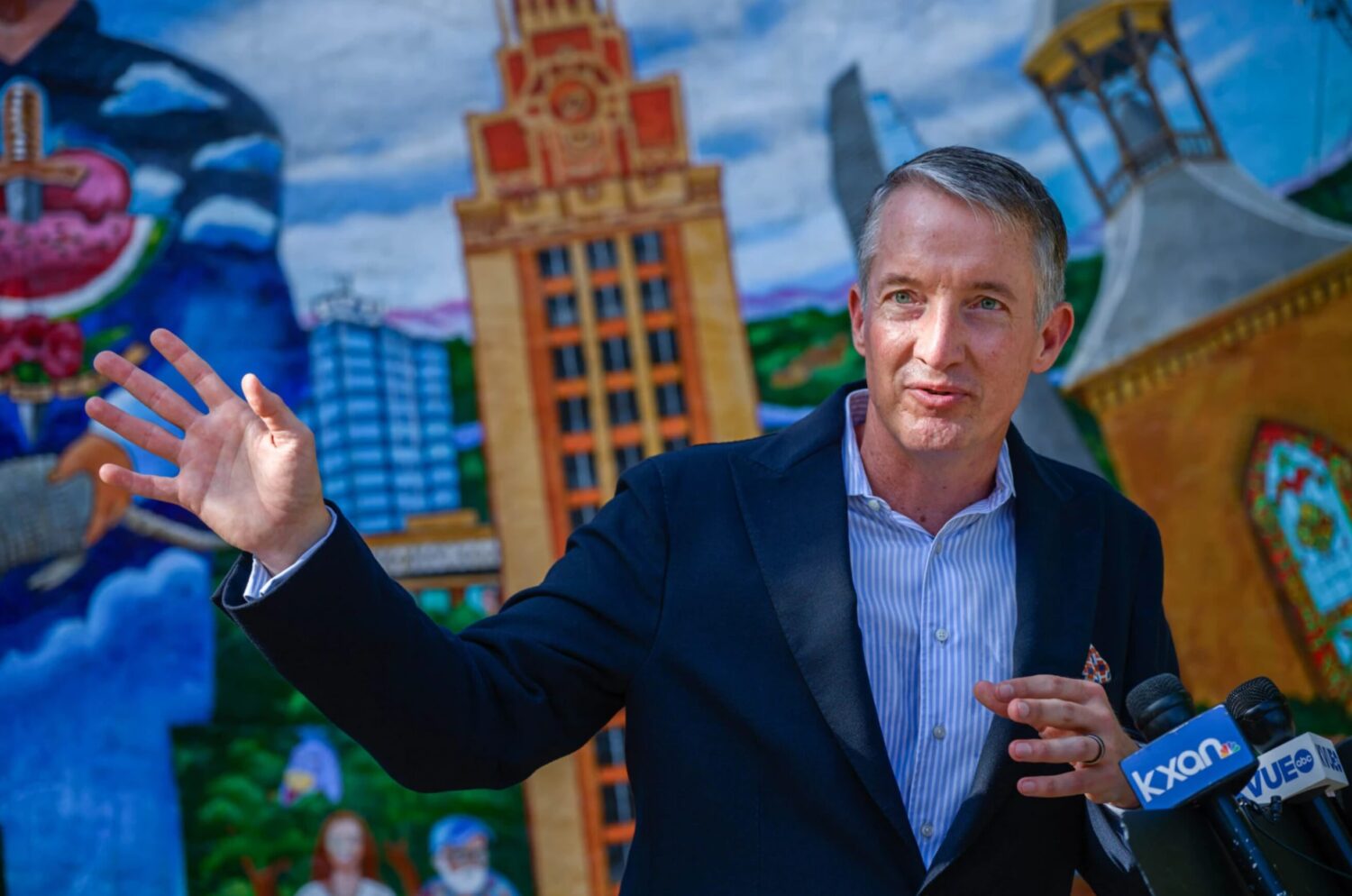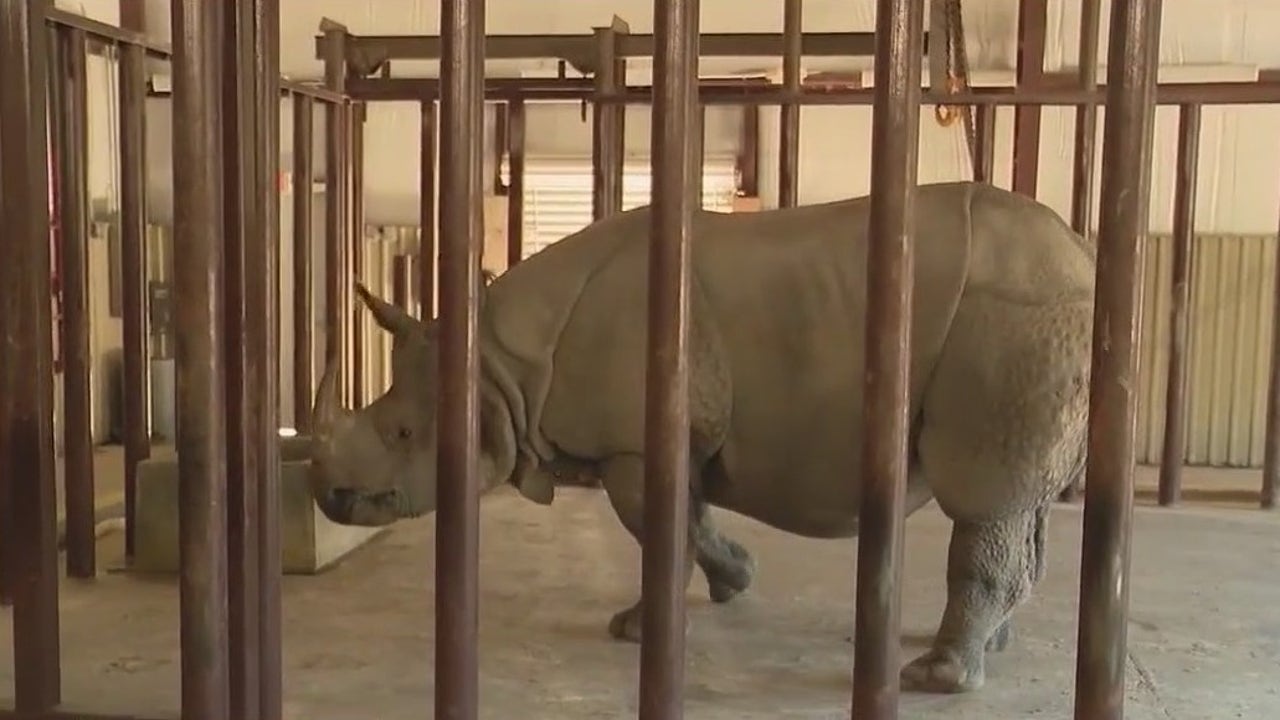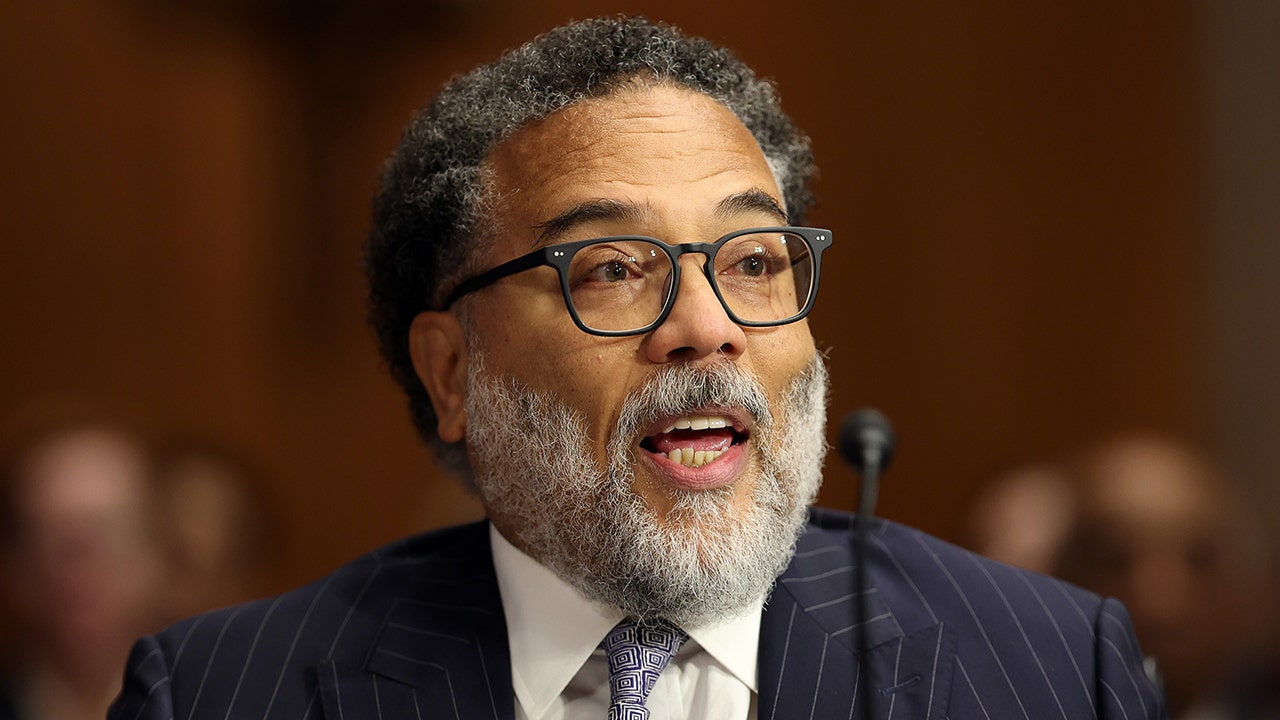World
Malaysia will ‘not survive’ if it does not change: Anwar Ibrahim

Kuala Lumpur, Malaysia – Malaysian Prime Minister Anwar Ibrahim has reaffirmed the need for reforms, saying Malaysia must change or it will not survive.
“When it comes to governance, I think it is my duty to undertake and effect change because the country is somewhat destroyed. Unless there is a clear political commitment and resolve to change, I do not believe Malaysia will survive,” he said in an in-depth interview with Al Jazeera’s 101 East programme, stressing he was committed to transitioning Malaysia from race-based to needs-based affirmative action policies.
Anwar, now 75, became prime minister after elections in November 2022, capping a turbulent rise to the top of Malaysian politics.
A firebrand youth leader, he rapidly climbed the political ladder to become second-in-command to then Prime Minister Mahathir Mohamad in the 1990s. Sacked and accused of sodomy and corruption in the midst of the Asian Financial Crisis, Anwar was eventually jailed twice on charges widely considered to be politically motivated, fuelling a campaign for reform that has lasted more than 20 years.
Malaysia is a multi-ethnic country, but affirmative action policies that benefit the majority made up of Muslim Malays and Indigenous peoples have been in place since the 1970s. Such policies give preferential treatment to these ethnic groups in areas from jobs to education and housing and were introduced as part of a social engineering programme following racial riots between the Malays and ethnic Chinese in May 1969.
While the policies were supposed to be temporary, they have remained in place ever since, creating deepening resentment among the country’s minority Chinese and Indian communities and leading many to leave the country in search of better opportunities elsewhere.
And with relatively high-income inequality in Malaysia, it has also attracted questions about whether the policies have reached those who need them most.
For Anwar, a needs-based approach “would help the Malays more than the race-based policies, because the race-based policies have been proven to be used by the few elites and their cronies to benefit themselves”.
An uneasy alliance
But whether he can push through such reforms is another question.
Anwar is breaking new ground as Malaysia’s first prime minister from a multiracial party, in a country that has traditionally been ruled by Malay and other race-based parties. Malays make up just over half the population and are Muslim by law.
It is also fragile ground because his Pakatan Harapan (Alliance of Hope) coalition did not win enough seats to form a government on its own.
His rise to power was only made possible through an alliance with smaller parties, including Malaysia’s former ruling coalition Barisan Nasional (National Front), which is led by the Malay-only United Malays National Organisation (UMNO).
Barisan Nasional was the architect of Malaysia’s race-based affirmative action policies and perpetuated them during its decades-long rule, while UMNO has long cast itself as the nation’s defender of Malay rights.
Anwar, however, brushes off concerns about differing goals within his alliance.
“What is important is the coalition is based on certain core principles: good governance, a strong stance against corruption [and] abuse of power, and economic policies that could cater [to] the common man and woman,” he said.
Issues of race and religion are chronic fault lines in Malaysia.
Anwar’s main opponent is Perikatan Nasional (National Alliance), a coalition of conservative Malay-Muslim parties. It has already attacked Anwar over issues such as his government’s recent decision to withdraw its appeal against a court ruling allowing non-Muslims to use the word Allah, the Malay and Arabic word for God, with opposition leader Hamzah Zainudin criticising Anwar as “reckless”.
With six state elections scheduled to take place by August, the debate around race and religion is expected to become even more heated.
“God willing, I think we will win big in the coming election[s]. The people are still with us, and they don’t believe that this current government can manage … Maybe they are just waiting for us to take over,” Hamzah, the opposition leader, told 101 East.
Anwar is unperturbed. He says his government is “very stable”.
“What else do you expect the opposition to do? Some are very jittery because of my strong stance against corruption and abuse of power. There is always this rumour about people swinging sides, changing sides. It doesn’t bother me. I think they misread it if they think that I’m a bit rattled. No.”
The prime minister claimed some of the most corrupt forces comprising the political elites in the country are “ganging up with the billions at their disposal” to unseat him.
“But now that I’m in power, I’m not sitting idle. I will fight them if they want to solicit support by buying people, by bribing people and to protect their turf,” he said.
Anti-corruption drive
Under Anwar’s administration, an anti-corruption drive has already ensnared powerful opposition figures such as former Prime Minister Muhyiddin Yassin, who is on trial for money laundering and abuse of power.
Muhyiddin is accused of using his position to receive $51m in bribes into his party’s bank account. He rejects the allegation, saying the money was for projects to help the public and the economy.
Muhyiddin’s coalition narrowly lost to Anwar’s in the 2022 election, and he has claimed he is seen as a threat to Anwar and has become “a victim of selective political prosecution”. The prime minister denies interfering in the corruption probe.
Anwar’s own deputy, Ahmad Zahid Hamidi, is also facing multiple corruption charges that were laid four years ago during Pakatan Harapan’s previous brief stint in power. Given Anwar’s well-known stance against corruption, his selection of Zahid as deputy prime minister was controversial.
According to analyst Tricia Yeoh, as UMNO president, Zahid’s role in the new government was seen as a “necessary political compromise” given the party’s crucial position as kingmaker in Anwar’s current alliance.
“If not for having Zahid as a deputy prime minister, the entire equation would have fallen apart anyway. The government wouldn’t have been formed. There would have been no Anwar Ibrahim as prime minister to speak of,” Yeoh said.
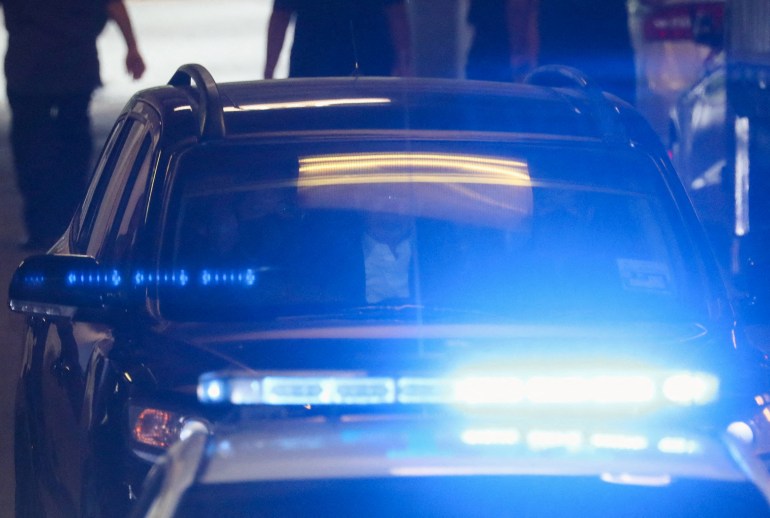
Anwar’s role in the case of another former prime minister, Najib Abdul Razak, has also been scrutinised.
Najib was sentenced in 2020 to 12 years in prison for his role in the multibillion-dollar 1MDB scandal and is now seeking a royal pardon. As de facto federal territories minister, Anwar is a member of the Pardons Board that will review Najib’s application. This has raised questions over his neutrality given that Najib belongs to coalition partner UMNO.
“When you seek a pardon, it does not mean that you consider yourself innocent. There is the process, and I respect the process. Anyone – any prisoner, any convict – has the right to appeal to the king and seek pardon. Why deny Najib’s right? Let the process go,” Anwar said.
“There’s no conflict. I will look at the process. I have read the appeal by UMNO and my response is they have every right to appeal. I shouldn’t prejudge the case.”
The question remains whether policies that are fair for all can be achieved in a country where the “special status” of Malays and Indigenous groups is protected in the constitution. For Anwar, there is no contradiction.
“This system, you accept it as a reality. What is forbidden is, of course, to use that to discriminate and undermine the rest … This administration, we made it very clear. We protect the sanctity of our belief, our religion. But we are Malaysians,” he said.
“It is up to us in the present government to prove a case that the future for this country is based on a multiracial agenda.”
Watch the 101 East episode, The Road Ahead: Malaysia’s Anwar Ibrahim: aje.io/anwar
The full-length 101 East interview with Anwar Ibrahim will be released next week.

World
Venezuela’s Opposition Candidate Says His Son-In-Law Was Kidnapped

The man widely called the true winner of Venezuela’s tainted presidential election said on Tuesday that his son-in-law had been kidnapped by hooded men in Caracas, the capital.
Edmundo González said that his son-in-law, Rafael Tudares, was walking Mr. González’s grandchildren to school when he was “intercepted” by hooded men dressed in black, and taken away in a gold van.
“At this time he is missing,” he wrote on X.
The reported kidnapping comes one day after Mr. González met at the White House with President Biden, whose administration recognizes Mr. González as president-elect, in an effort to put international pressure on President Nicolás Maduro, the longtime authoritarian leader who claims he won Venezuela’s July election.
On Monday the Maduro government, in a statement, called the meeting “a flagrant violation of international law and a crude attempt to perpetuate imperialist interference in Latin America.”
Mr. González, 75, was forced to flee the country shortly after millions of Venezuelans voted for him, and he is now living in exile in Spain. He has promised repeatedly to return to his country to be sworn in on Friday, when Maduro, in power since 2013, is scheduled to be inaugurated for another six-year term.
The Maduro government has imposed a $100,000 bounty on Mr. González and he likely faces arrest if he returns.
The Venezuelan government has unleashed a wave of repression against anyone who challenges its declared victory, arresting about 2,000 people and charging most with terrorism. Human rights groups have described it as Venezuela’s most brutal campaign of repression in recent decades.
The government has released hundreds of those prisoners in recent months, in what many analysts saw as a signal to President-elect Donald J. Trump that it is willing to ease up on human rights in exchange for favorable treatment.
The U.S. State Department called the disappearance an attempt to “intimidate Venezuela’s democratic opposition.”
A spokesman for the Maduro government did not immediately respond to a request for comment.
Diosdado Cabello, a top official in Mr. Maduro’s government and one of his most powerful allies, did not refer directly to the episode in public remarks on Tuesday, but said, “today we have just dismantled a very dangerous group” of “foreign mercenaries from the United States and Colombia.’’
Mr. Tudares’ wife, Mariana González, said in a statement that her husband was a victim of “persecution.”
“At what point did it become a crime to be Edmundo Gonzalez Urrutia’s family?” she said.
World
At least 9 miners are trapped in a coal mine in India's northeastern Assam state
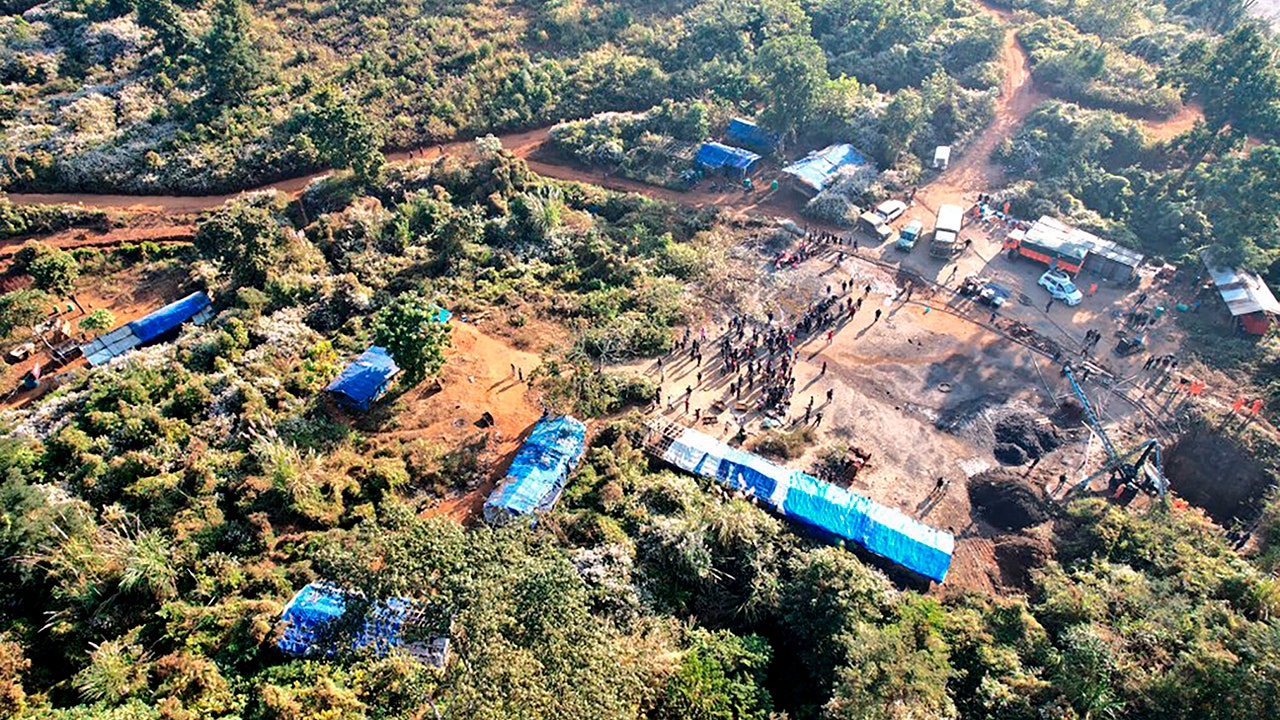
At least nine workers are trapped inside a flooded coal mine in India’s northeastern Assam state, officials said Tuesday, as authorities summoned the army to help in the rescue operation.
The miners became trapped on Monday morning in the Umrangso area in Dima Hasao district, about 125 miles (200 kilometers) south of the state capital, Guwahati.
13 YOUNG MINERS FEARED DEAD IN INDIA’S REMOTE NORTHEAST
The workers are “feared trapped 300 feet below the ground after water gushed in from a nearby unused mine. We are mobilizing resources to rescue them,” said Kaushik Rai, a local government minister who is monitoring the rescue efforts.
Army soldiers and a national disaster management team at the site used ropes and cranes to assist the ongoing operation.
This image provided by the Indian Army shows an aerial view of the site where at least nine workers are trapped inside a coal mine, in the Umrangso area of Dimapur Hasao district in the northeastern state of Assam, India, on Tuesday, Jan. 7, 2025. (Indian Army via AP)
Rescuers found three helmets, some slippers and a few other items, Rai said. “The divers have been able to dive into 35 or 40 feet of water inside the mine. The water level now is estimated at 100 feet,” he said.
Assam Chief Minister Himanta Biswa Sarma said on the social media platform X that the mine appeared to be illegal and that police had arrested one person as they investigate the case.
Workers at the site said over a dozen miners had been trapped inside the mine, which has minimum safety measures, and some managed to escape as water from a nearby unused mine began filling the mine.
In India’s east and northeast, workers extract coal in hazardous conditions in small “rat hole” mines that are narrow pits in the ground, usually meant for one person to go down, and are common in hilly areas. The coal is usually placed in boxes that are hoisted to the surface with pulleys. In some cases, miners carry coal in baskets up on wooden slats flanking the walls of the mines.
Accidents in illegal mines are frequent and the livelihoods of those who do such mining depend on the illegal sale of coal. At least 15 miners were killed after getting trapped in one such mine in Meghalaya state in 2019.
World
Herbert Kickl invites ÖVP to hold coalition talks
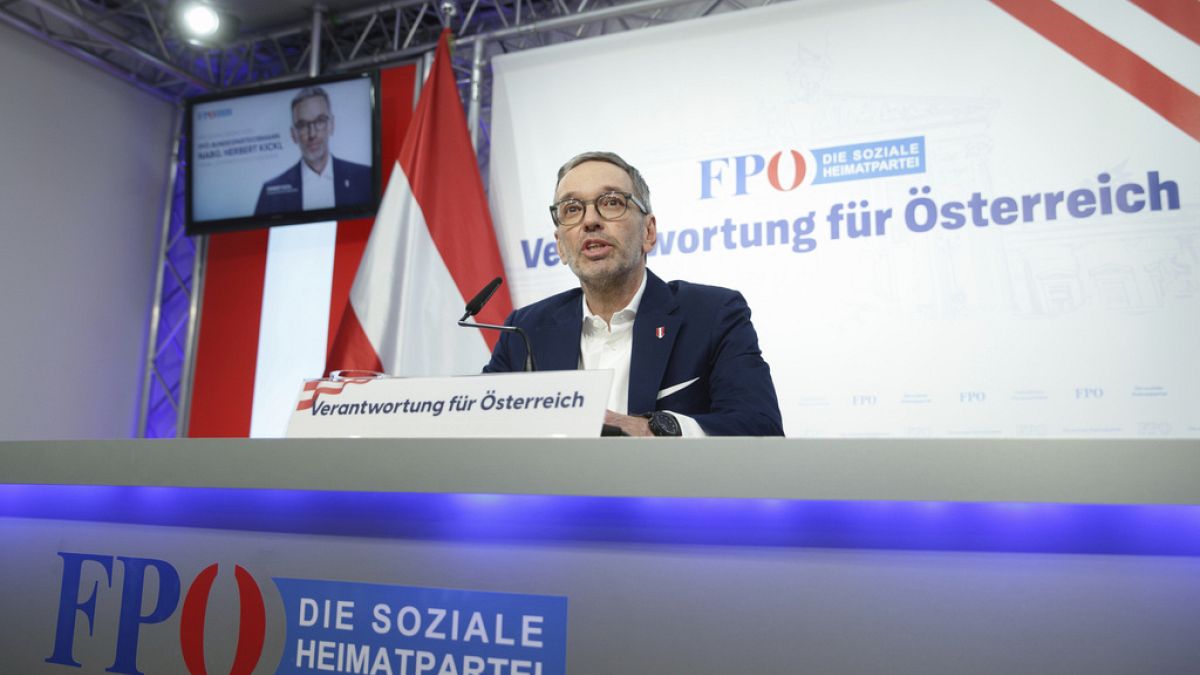
The head of Austrian far-right Freedom Party, Herbert Kickl, invited the conservative Austrian People’s Party to coalition talks after being tasked with forming a government.
Austrian far-right Freedom Party (FPÖ) leader Herbert Kickl extended an olive branch to the conservative Austria’s People Party (ÖVP) on Tuesday, inviting them to coalition talks.
His comments come after Austrian President Alexander van der Bellen gave him the green light to attempt to form a ruling coalition.
Though the two parties have a history of clashing heads, Kickl said during a press conference that he would officially extend the invitation once his party’s leadership approved the move in a meeting on Tuesday evening.
The conservative ÖVP is the only viable coalition partner for the FPÖ, but Kickl urged the party to be “honest” in talks or face the threat of a snap election amidst rising support for his own political group.
Kickl said early steps in talks would be small and that it still needs to be seen whether the coalition would be viable or not. However, he also said he does not want to lose any time and now wants to start a “massive political firefighting operation.”
During his statement on Tuesday, Kickl pointed out that it had been 100 days exactly since parliamentary elections in September but described the three months since the results came in as “lost.”
Coalition talks between the far right and conservatives aren’t guaranteed to succeed, but there are no longer any other realistic options in the current parliament and polls suggest that a new election soon could strengthen the Freedom Party further.
Kickl’s party secured victory in those elections, winning 28.8% of the vote and surpassing outgoing Chancellor Karl Nehammer’s conservative ÖVP, which came in second.
Van der Bellen initially tasked Nehammer with forming a government. However, the ÖVP refused to enter a coalition with the FPÖ under Kickl – leading to a political stalemate.
Efforts to form a governing alliance without the FPÖ failed by early January, prompting Nehammer to announce on Saturday that he would resign.
-

 Business7 days ago
Business7 days agoThese are the top 7 issues facing the struggling restaurant industry in 2025
-

 Culture7 days ago
Culture7 days agoThe 25 worst losses in college football history, including Baylor’s 2024 entry at Colorado
-

 Sports6 days ago
Sports6 days agoThe top out-of-contract players available as free transfers: Kimmich, De Bruyne, Van Dijk…
-

 Politics5 days ago
Politics5 days agoNew Orleans attacker had 'remote detonator' for explosives in French Quarter, Biden says
-

 Politics5 days ago
Politics5 days agoCarter's judicial picks reshaped the federal bench across the country
-

 Politics3 days ago
Politics3 days agoWho Are the Recipients of the Presidential Medal of Freedom?
-

 Health2 days ago
Health2 days agoOzempic ‘microdosing’ is the new weight-loss trend: Should you try it?
-

 World7 days ago
World7 days agoIvory Coast says French troops to leave country after decades


